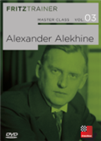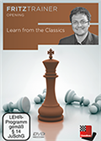An interview
By Adelardo Fernández Arias
Originally published on May 14, 1932 in ABC, the oldest newspaper still operating in Madrid
When will the world chess championship be played? I asked Capablanca, who is now in New York. And the famous chess player said to me, “Whenever Alekhine wants”.
 Why do you say that?
Why do you say that?
Because I have been challenging him for the last four years, since he won the championship, and he has never made up his mind to accept my challenge. He doesn't say no to me, but the championship doesn't take place. He hides behind the interpretation of the rules of chess. Imagine, I've made these rules myself! He brings up one pretext after another, delaying the match, without me being able to face him directly.
Last year he said that he had agreed for the match to be held between August 15 and September 15, either in New York or in Havana, but you must understand that it was a pretext, because at that time of year there is no one in New York interested in chess, and neither in Havana is the right time of year to hold a championship of that nature.
So?
There will be no choice but to raise the prize fund of twelve or fifteen thousand dollars, and when the money has been raised make him come to play the match. Until now, the public might have thought that, in fact, he was exercising a legitimate right under the international rules of chess, which state that “the world champion has the right to set the date of the next match”, but not anymore. Now everyone understands that he is avoiding the match with me.
 On this DVD GMs Rogozenco, Marin, Müller, and IM Reeh present outstanding games, stunning combinations and exemplary endgames by Alekhine. And they invite you to improve your knowledge with the help of video lectures, annotated games and interactive tests
On this DVD GMs Rogozenco, Marin, Müller, and IM Reeh present outstanding games, stunning combinations and exemplary endgames by Alekhine. And they invite you to improve your knowledge with the help of video lectures, annotated games and interactive testsBut isn't there, as in all sports, a Federation or...?
The only thing that escaped me was the creation of a jury, with enough powers to prevent these things from happening. There is, in fact, a kind of commission that resides in The Hague, but it does not have the moral fortitude nor the power to take the necessary coercive measures so that cases like this one do not take place.
Are you so sure you will win the championship again?
I am. Especially since I know that as soon as Alekhine loses the first few games, he will be demoralized. That's what happened to old Lasker when I beat him in the championship.
What was the session in which you played the most simultaneous games?
In February 1922, in Cleveland. I played against 103 players. I won 102 games, and drew one. But that was a fluke. It's the same as if you jumped out that window and got to the street unharmed. The whole of Ohio was represented there, and there were players from all walks of life, and it was very interesting.
Another very interesting session took place in Manchester, where I played against thirty selected players, and the one who played the worst could play against me, mano a mano, with no more initial advantage than a knight perhaps.

Capablanca facing 50 teams in 1931 — the Cuban star is standing at a board about half-way down the right-hand side | Photo: American Chess Bulletin, retrieved from Edward Winter's Chess Notes
Who are the best chess players in the world?
The Slavs. Don't you see that race and weather conditions help them? That's why Russians are all good musicians and good chess players. They lead a life of seclusion, because of the cold, and their temperament is one of concentration. They are abstract, not concrete.
How did your chess skills develop?
My father played it and I watched him play and, without knowing how or why, I learned right away. I was four years old when I already knew how to play chess. I played, although my family did not let me play. I came here, to the United States, to study at Columbia University the career of a mechanical engineer and then a chemist, and after having experienced some disagreements with my family in 1908 I, who had played here several times and saw that I always won, devoted myself fully to chess, and soon I beat the American champion. Between 1908 and 1918 is when I intensified my training. In 1921, I won the world championship.
Have you made a lot of money in chess?
More than anyone else, but that doesn't mean I made that much, because no one really makes a lot of money in chess. However, I can assure you that I also have, in this sense, the championship title.
And is chess difficult?
Very difficult, but it's not as complicated as people think. Of course, you have to learn it with a teacher and study with books, but there comes a time when, once the technical side has been fully learned, only the personal element remains: the initiative, the vision, the concentration, the speed, the mastery of the game.
What is the practical purpose of chess in life?
I think it should be taught in schools, so that children get used to thinking and organizing their thoughts. It is a mental exercise of great consequence. Everyone should know how to play chess, to get used to thinking and controlling themselves.
 What is the piece you prefer the most on the chessboard?
What is the piece you prefer the most on the chessboard?
None should be preferred. Preference for a certain piece leads to having a weakness for that piece. However, if I'm pushed to choose one, I will tell you that I like pawns, which are precisely the simplest and least dangerous pieces. Old Lasker thought the same.
The future of chess?
Chess is played more than ever before in the world. Undoubtedly, it is being developed as part of the general culture.
What is the origin of chess?
A lot has been written about it. But I can assure you that we don't really known who the inventor of chess was. It is known that, three thousand years before Christ, it was already being played in the world. And yet, despite the universality of chess, we find that people from places like India or China have different variants of chess. In India, for example, the pawns do not advance more than one square, and in China there are more pieces. In India, castling is done differently, and in China there are moves that are different to ours.
Are there women who play chess well?
One in the world. Her name is Menchik, she's Czechoslovakian and Slavic, and she was educated and lives in England. She has played with me, and she's very strong.
Your most important games?
As a curiosity, I'll mention one I played in Moscow in 1925, against a group of Soviet commissioners. I played against twenty players. Rykoof and Krylenko were there. Besides, Trotzky is a good player, as was Lenin. English Minister Bonar Law is also a great player, and the historian Buckle, and the pianist Rosenthal. I have noticed that many musicians are great chess players.
And from Spain?
The champion, Mr. Rey, is a good player. I played with him in Barcelona. I certainly look forward to going to Spain to visit him properly. The last time I was there my previous engagements got in the way.
The phone rang. They called Capablanca and we said goodbye.
 Sagar Shah shows you on this DVD how you can use typical patterns used by the Master of the past in your own games. From opening play to middlegame themes.
Sagar Shah shows you on this DVD how you can use typical patterns used by the Master of the past in your own games. From opening play to middlegame themes. 
During the interview with Adelardo Fernández Arias | Photo: ABC Madrid
Translation from Spanish: Carlos Colodro
He was a child prodigy and he is surrounded by legends. In his best times he was considered to be unbeatable and by many he was reckoned to be the greatest chess talent of all time: Jose Raul Capablanca, born 1888 in Havana.
Links


















 Why do you say that?
Why do you say that?




